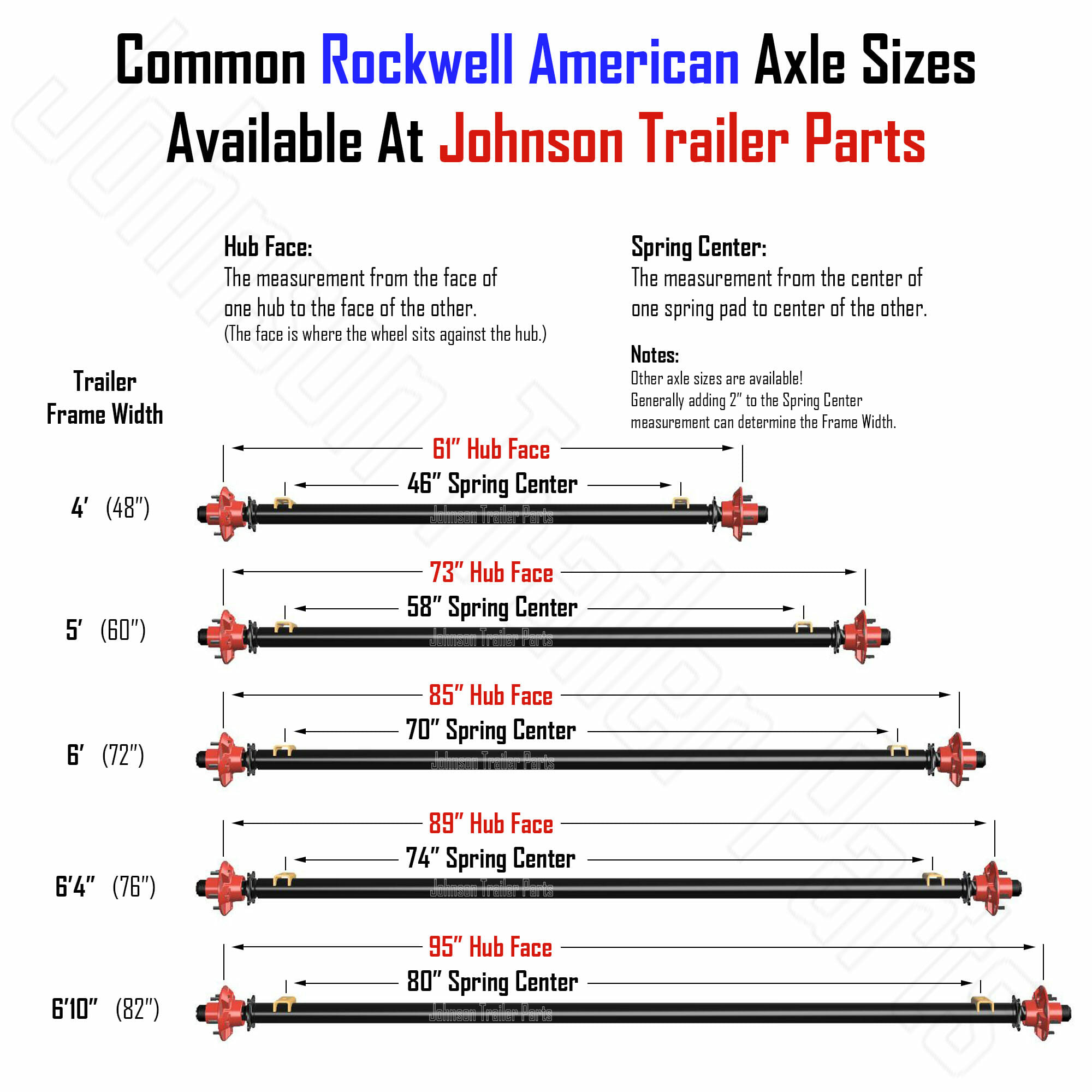Trailer Wheel Hub Measurement: A Comprehensive Guide
Ever found yourself staring at your trailer, wondering about the mysterious inner workings of the wheels? It might seem like a small detail, but knowing your trailer wheel hub measurements is crucial for maintenance, repairs, and ensuring a smooth, safe towing experience. This guide will walk you through everything you need to know about measuring a trailer wheel hub, empowering you to tackle any wheel-related challenge.
Determining the correct trailer wheel hub size isn't just about knowing a few numbers; it’s about understanding how those measurements impact your trailer's performance and safety. From bearing sizes to bolt patterns, we'll demystify the process and equip you with the knowledge to confidently measure your trailer wheel hub.
While the precise origins of standardized trailer wheel hub measurements are difficult to pinpoint, they evolved alongside the automotive industry, driven by the need for interchangeability and standardized parts. Early trailers likely had custom-made hubs, making repairs and replacements a logistical nightmare. The standardization of hub measurements revolutionized trailer maintenance, making it easier and more efficient.
One of the main issues associated with incorrect trailer wheel hub measurements is the risk of bearing failure. Using the wrong bearings can lead to overheating, excessive wear, and ultimately, a breakdown. Accurate measurement ensures you select the right components, preventing costly repairs and ensuring a safe journey.
Understanding the different components and measurements is key. The hub bore diameter is the size of the hole in the center of the hub, where it fits onto the axle. The bolt pattern is the arrangement of the studs that secure the wheel to the hub. Finally, the pilot diameter is the raised lip on the hub that centers the wheel. Getting any of these wrong can lead to problems.
Accurately measuring your trailer wheel hub offers several benefits. Firstly, it ensures compatibility when replacing or upgrading components. Secondly, knowing your measurements allows you to proactively address wear and tear, preventing costly repairs down the road. Finally, it contributes to safe and efficient towing by ensuring the wheels are properly fitted and functioning.
To measure your trailer wheel hub, you’ll need a few tools: a caliper or ruler, and a pen and paper to record your measurements. Start by cleaning the hub to remove any dirt or debris. Then, measure the hub bore diameter, followed by the bolt pattern and the pilot diameter. Double-check your measurements for accuracy.
Here’s a step-by-step guide: 1. Clean the hub. 2. Measure the hub bore diameter. 3. Measure the bolt pattern. 4. Measure the pilot diameter. 5. Record your measurements.
A handy checklist for measuring your trailer wheel hub: Hub Bore Diameter measured? Bolt Pattern measured? Pilot Diameter measured? Measurements recorded?
Recommendations: etrailer.com
Advantages and Disadvantages
| Advantages | Disadvantages |
|---|---|
| Ensures proper fitment | Requires accurate measurement |
| Prevents bearing failure | Can be time-consuming |
| Increases safety | Requires specific tools |
Best Practices: 1. Always clean the hub before measuring. 2. Use the correct tools. 3. Double-check your measurements. 4. Consult a professional if unsure. 5. Refer to your trailer's manual.
Real Examples: Different trailer types (boat trailers, utility trailers, camper trailers) often have different hub sizes and configurations, highlighting the importance of accurate measurement for each specific application.
Challenges and Solutions: Rust or damage to the hub can make accurate measurement difficult. Solution: Clean the hub thoroughly or replace it if necessary.
FAQ: 1. How often should I measure my trailer wheel hub? Answer: When replacing components or experiencing issues. 2. What tools do I need? Answer: Caliper or ruler. 3. What if my measurements are off? Answer: Double-check or consult a professional. 4. Where can I find more information? Answer: Consult your trailer's manual or reputable online resources. 5. Why is it important to measure the pilot diameter? Answer: Ensures proper wheel centering. 6. How do I measure the bolt pattern? Answer: Measure from the center of one stud to the center of the opposite stud. 7. What is the hub bore diameter? Answer: The size of the hole where it fits onto the axle. 8. Can I use a tape measure? Answer: A caliper is more accurate.
Tips and Tricks: Using a digital caliper can provide more precise measurements. Take multiple measurements and use the average for greater accuracy. Keep a record of your trailer wheel hub measurements for future reference.
Knowing how to measure your trailer wheel hub is essential for maintaining your trailer’s safety and performance. From preventing bearing failures to ensuring proper wheel fitment, accurate measurements are crucial for a smooth towing experience. By understanding the different measurement types, utilizing the right tools, and following the steps outlined in this guide, you can confidently maintain your trailer’s wheels and enjoy worry-free journeys. Take the time to familiarize yourself with your trailer's unique requirements – it’s an investment in safety and peace of mind. Don't hesitate to consult with a professional if you encounter any challenges. Safe travels!
Refreshing your kicks behr shoelace paint colors
Dead battery no problem your guide to car battery jump starters
Decoding 403b withdrawals and federal taxes













